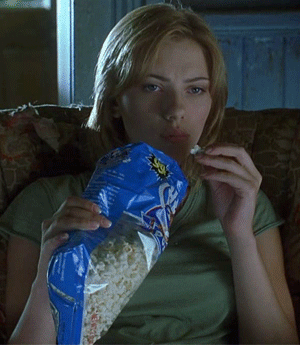Too few Calories diet doesnt put you in starvation mode?!

Hafose
Posts: 6 Member
I have been thinking about this for awhile. I have noticed that when I eat a very few calories like less than 1000 calories a day, I do actually lose so much weight faster. I been told that when you eat less than 1200 calories, your body goes to starvation mode, which lowers your metabolism and slows down the weight loss. However, this is not the case for me. I lose more and its not a water weight because I can see the change in my body.
Many people (Including health professionals) would say I am risking muscle loss. Well, that is kinda strange to me. The extra fat in my body was stored as energy, and when my body doesnt have enough energy why wouldn't it use the fat instead of the muscles?? I mean that makes sense right?
If you eat more than you need, your body stores the extra calories as fat. Therefore when you eat less than you need , your body needs energy and it is supposed to use the stored fat as an energy. SEEMS LEGIT TO ME.
Many people (Including health professionals) would say I am risking muscle loss. Well, that is kinda strange to me. The extra fat in my body was stored as energy, and when my body doesnt have enough energy why wouldn't it use the fat instead of the muscles?? I mean that makes sense right?
If you eat more than you need, your body stores the extra calories as fat. Therefore when you eat less than you need , your body needs energy and it is supposed to use the stored fat as an energy. SEEMS LEGIT TO ME.
0
Replies
-
Starvation mode as its thought of - myth. Yes, your body's metabolism can slow down (there is a term for it) but it would take a while (I don't know how long) of eating low calories.
When you create a deficit its natural to lose some muscle as well as fat. I imagine in some sort of ratio relative to the fat/muscle ratio of your body. So by using a moderate deficit + strength training, you can work to maintain muscle so your net result is mostly lost fat. If you try extreme measures and/or don't do strength training, you will lose more muscle and that in the long term will affect metabolism.0 -
yup. starvation mode is a mythStarvation mode as its thought of - myth. Yes, your body's metabolism can slow down (there is a term for it) but it would take a while (I don't know how long) of eating low calories.
When you create a deficit its natural to lose some muscle as well as fat. I imagine in some sort of ratio relative to the fat/muscle ratio of your body. So by using a moderate deficit + strength training, you can work to maintain muscle so your net result is mostly lost fat. If you try extreme measures and/or don't do strength training, you will lose more muscle and that in the long term will affect metabolism.
low calorie dieting just means loss of muscle mass, poor health, and eventually some metabolic adaptation which will lower your bmr (by how much is lost on me, i've tried to find some numbers but i've seen anywhere from 5% to 30% reduction)0 -
As others have said, lower calorie diets will cause weight loss up to a point... starvation mode is a myth however your body is smart and will compensate... too few calories leads to skinny-fat... slim arms and legs with a pot belly...
1. lose weight to build motivation on a caloric deficit
2. build muscle to look good naked while on caloric surplus
3. be patient... marathon not a sprint.I have been thinking about this for awhile. I have noticed that when I eat a very few calories like less than 1000 calories a day, I do actually lose so much weight faster. I been told that when you eat less than 1200 calories, your body goes to starvation mode, which lowers your metabolism and slows down the weight loss. However, this is not the case for me. I lose more and its not a water weight because I can see the change in my body.
Many people (Including health professionals) would say I am risking muscle loss. Well, that is kinda strange to me. The extra fat in my body was stored as energy, and when my body doesnt have enough energy why wouldn't it use the fat instead of the muscles?? I mean that makes sense right?
If you eat more than you need, your body stores the extra calories as fat. Therefore when you eat less than you need , your body needs energy and it is supposed to use the stored fat as an energy. SEEMS LEGIT TO ME.0 -
To counteract the "muscle loss" of a low-calorie diet, you need to eat the right amount of protein. However, be careful about how much protein you eat if you don't exercise. If you eat more protein than your body can use, it is said that it can be stored as fat. Vicious cycle.0
-
To counteract the "muscle loss" of a low-calorie diet, you need to eat the right amount of protein. However, be careful about how much protein you eat if you don't exercise. If you eat more protein than your body can use, it is converted to sugar, and excess sugar is converted to fat. Vicious cycle.
Nope.0 -
Can someone provide a reliable source depicting starvation mode to be a myth?
OP: You will lose weight at first, but it will tapper off, plateau, and eventually reverse when spending prolonged periods below 1200. Extremely restricted diets are unrealistic to live by, thus most people fail them and regain weight.0 -
I guess more correctly stated below...
"Weight Gain
Your body can only use a certain amount of protein each day. If you take in too much protein, you may gain weight. Each gram of protein has 4 calories. If you take in 100 grams of protein, but your body can only use 50 grams of it, your body will store the extra 200 calories' worth of protein as fat. Doing this daily can cause you to take in 1,400 extra calories per week, resulting in a weight gain of almost 2 pounds per month."0 -
Here is a lengthy post explaining things and doing a good job....
http://www.leighpeele.com/starvation-mode#more-104230 -
Starvation mode as its thought of - myth. Yes, your body's metabolism can slow down (there is a term for it) but it would take a while (I don't know how long) of eating low calories.
When you create a deficit its natural to lose some muscle as well as fat. I imagine in some sort of ratio relative to the fat/muscle ratio of your body. So by using a moderate deficit + strength training, you can work to maintain muscle so your net result is mostly lost fat. If you try extreme measures and/or don't do strength training, you will lose more muscle and that in the long term will affect metabolism.
Whatever you want to call it, "Metabolic Adaptation" is very real and one of the main reasons why we plateau while dieting and for those that succeed to lose weight, rarely keep it off.
The studies I've read show that 7 days of caloric restriction causes a drop in leptin levels thus increasing food cravings and a gradual decline in RMR.
But I don't need studies to tell me what I've learned through experience. When I began Spiking 11 years ago and was consistently losing .2-3lbs per week. I was told by ,many "experts" that while that's great, "just wait until my body figures out what I'm doing and the weight comes back with a vengeance" Well now 10 years since I lost over 100lbs, I'm still waiting for this "vengeance".
Our bodies are complex and are always adapting to survive our environment, and to really understand obesity and weight loss you need to know why we store fat to begin with? It's simply for survival, for thousands of years the human race had to adapt to survive times of famine and scarcity of food. If the human body didn't adapt, our race would have been extinct thousands of years ago. Starvation Mode gets a bad rap because of the word "starvation", true we aren't literally starving but our body begins to adapt every time we are simply eating less calories then we need. When we are in a negative caloric balance for several days in a row a "survival alarm" gores off. For those who are really going through famine, this adaptation allows them to live longer on less calories and at the same time increases their drive to find food. For those of us who are trying to lose weight need to understand that a "diet" is nothing more than a self-induced famine to our bodies. It doesn't know we are purposely doing this for our health. Obesity has only become a species issue the past 30 years where famine has been an issue for 10's of thousands, If you just right of "Starvation Mode" as a myth you are being naive. Sure the proper term is Metabolic Adaptation but either way it's a real phenomenon that needs to be addressed in order to have long-term success.
But what do I know? I'm only one of the .5% of people to lose over 100lbs without drugs or surgery and keep it off for more than 10 years. You can choose to listen to the mainstream, that has been selling us garbage and lies for the past 30 years while the world gets more and more overweight despite their suggestions.0 -
Starvation mode is actually NOT a myth it's just grossly, grossly misunderstood. MFP "experts" that spout off about starvation mode have obviously not read the original research studies. Metabolic Adaptation relates to starvation mode but encompasses more then just extreme deficit that was associated with the original studies on the affects of "starvation" (ie extreme calorie restriction). That being said, steady reasonable deficits will gain you a higher likelihood of lifestyle change and lasting results. Good luck on your journey.0
-
I guess more correctly stated below...
"Weight Gain
Your body can only use a certain amount of protein each day. If you take in too much protein, you may gain weight. Each gram of protein has 4 calories. If you take in 100 grams of protein, but your body can only use 50 grams of it, your body will store the extra 200 calories' worth of protein as fat. Doing this daily can cause you to take in 1,400 extra calories per week, resulting in a weight gain of almost 2 pounds per month."
this is justa roundabout way of saying stay within your calorie goals
calories = weight loss / gain
macros = fitness and body composition0 -
I have noticed that when I eat a very few calories like less than 1000 calories a day, I do actually lose so much weight faster.
No *kitten*.Many people (Including health professionals) would say I am risking muscle loss.
...which is true.SEEMS LEGIT TO ME.
...which is why it's good that you're not a nutritionist.yup. starvation mode is a myth
low calorie dieting just means loss of muscle mass, poor health, and eventually some metabolic adaptation which will lower your bmr (by how much is lost on me, i've tried to find some numbers but i've seen anywhere from 5% to 30% reduction)
^What he said.0 -
I think the biggest "myth" is that the body "holds on" to fat during "starvation mode." The body does not stop burning fat at lower calories but it does slow down. It does NOT STOP. Starvation mode implies you will not lose weight eating less. Well, you will. But the body will burn both muscle and fat for fuel if the glycogen stores it usually goes for are gone. No getting around that.0
-
I guess more correctly stated below...
"Weight Gain
Your body can only use a certain amount of protein each day. If you take in too much protein, you may gain weight. Each gram of protein has 4 calories. If you take in 100 grams of protein, but your body can only use 50 grams of it, your body will store the extra 200 calories' worth of protein as fat. Doing this daily can cause you to take in 1,400 extra calories per week, resulting in a weight gain of almost 2 pounds per month."
Now this is patently silly - your body will use whatever fuel you give it up to the point where you reach your TDEE. After that it can store it as fat - but I don't believe the "fat fairy" waves a magic wand and poof! the extra calories turn into fat. You have to consistently eat more calories than you are burning in order to accumulate fat. Be they protein, Carbs or fats - it's the total that counts, not the individual macro totals. The whole point to monitoring macros is to try and make the process as efficient as possible according to your goals.0 -
Although you may initially see a quick loss in weight it is unlikely that this will continue in the long run. Everything I have read suggests that eating less than 1200 cals at a minimum is not such a great idea and can cause damage in the long run. are you doing this for a quick fix or are you planning on keeping this up long term?0
-
Science is better at explaining what happens than why it happens. Very low calorie diets have many documented harmful effects on your body and psyche, both short-term and long-term. Doing so while not under direct medical supervision is a bad idea. We may wish it happened differently, we might live fuller lives if it happened differently, but that is or at least very much seems to be the reality we live in.Many people (Including health professionals) would say I am risking muscle loss. Well, that is kinda strange to me. The extra fat in my body was stored as energy, and when my body doesnt have enough energy why wouldn't it use the fat instead of the muscles?? I mean that makes sense right?0 -
During such extreme caloric restriction, chances are that you are not consuming all of the essential amino acids (necessary for protein synthesis) required by your body to carry out its basic functions for living (breathing, brain function, etc). When you are not consuming an adequate amount of complete proteins, the body essentially "eats" its own complete proteins--muscle tissue! Body fat does not supply the same nutrients that protein (muscle) does, and this is why your body will break down its own tissues during times of severe calorie/nutrient restriction. Science!0
-
I have been thinking about this for awhile. I have noticed that when I eat a very few calories like less than 1000 calories a day, I do actually lose so much weight faster. I been told that when you eat less than 1200 calories, your body goes to starvation mode, which lowers your metabolism and slows down the weight loss. However, this is not the case for me. I lose more and its not a water weight because I can see the change in my body.
Many people (Including health professionals) would say I am risking muscle loss. Well, that is kinda strange to me. The extra fat in my body was stored as energy, and when my body doesnt have enough energy why wouldn't it use the fat instead of the muscles?? I mean that makes sense right?
If you eat more than you need, your body stores the extra calories as fat. Therefore when you eat less than you need , your body needs energy and it is supposed to use the stored fat as an energy. SEEMS LEGIT TO ME.
There is no "starvation mode", but there is metabolic adaption. You can lose weight on VLCD, for sure, but you're body will adapt to that level of eating and one of two things will happen. You'll return to a normal, healthy calorie level and gain weight again, or you'll stay at a dangerously low calorie intake and develop all the medical problems associated with malnutrition.
You ARE risking muscle loss, and a lot more. Your body burns muscle first because it takes more calories to maintain (6-10 calories per pound vs 2-4 calories per pound of fat). When you're in a deprived state (dieting), your body will shed what takes more energy to maintain. That's evolution, whether it makes sense to you or not. (Note: Your brain alone burns about 300 calories a day. Do the math. VLCD are dangerous.)
This isn't a race. Eat sensibly, within moderation, and lose your weight safely and for good.0 -
I guess more correctly stated below...
"Weight Gain
Your body can only use a certain amount of protein each day. If you take in too much protein, you may gain weight. Each gram of protein has 4 calories. If you take in 100 grams of protein, but your body can only use 50 grams of it, your body will store the extra 200 calories' worth of protein as fat. Doing this daily can cause you to take in 1,400 extra calories per week, resulting in a weight gain of almost 2 pounds per month."
this is justa roundabout way of saying stay within your calorie goals
calories = weight loss / gain
macros = fitness and body composition
That's a way to try and save the claim and make it make sense, but that's not what it seems to be saying. Apparently the author is some personal trainer named Maia Appleby, and she does indeed argue that excessive protein intake (meaning more than about 46 g/day for the average woman) is very, very bad for a number of reasons, included that it supposedly will cause you to gain weight. She does not qualify this based on how many calories in total you are eating vs. your TDEE or otherwise suggest that this will only occur if you are eating a surplus of calories overall. So it's silliness.
(She seems to be particularly concerned about animal proteins.)
Since I usually hear this argument about carbs and Ms. Appleby seems to be anti protein and also fat (how retro!), it's kind of refreshing, although doesn't actually make sense, of course.0 -
I think the biggest "myth" is that the body "holds on" to fat during "starvation mode." The body does not stop burning fat at lower calories but it does slow down. It does NOT STOP. Starvation mode implies you will not lose weight eating less. Well, you will. But the body will burn both muscle and fat for fuel if the glycogen stores it usually goes for are gone. No getting around that.
This is why people are so confused, you are 100% correct. "Starvation Mode" doesn't mean we will gain weight while eating less, it just means the body adapts to "save" us from starvation if the current conditions were to continue indefinitely Which why it's now called Metabolic Adaptation, it's a better description of what is actually happening and less confusing.
For the record most people in the know, that have been using the term Starvation Mode" are referring to the hormonal and metabolic response to calorie restriction.
For example lets take an average person, that burns 2,500 calories a day. They eat 1200 calories daily for their diet. Mathematically you'd say they'd lose 2.6lbs a week. 1,300 daily caloric deficit X 7 days = 9,100 calories or 2.6lbs of fat.
Truth is they'd probably lose closer to 5lbs the first week because of glycogen depletion and water released when glycogen is burned up.
Now week two they'd probably be right around 2.6bs lost because glycogen is already depleted. By week 3 their body has already starting adapting and they are no longer burning 2,500 calories but lets say around 2,100 cals a day. So week 3 they now lose 1.8lbs, still very good.
Then week 4 their metabolism has slowed down even more and are now burning 1,900 a day and lose about 1lb a week.
Weight loss is still happening but the elephant actually entered the room weeks ago when "Metabolic Adaptation" first occurred. The elephant is the massive increase of food cravings. Mentally when we go from losing 8 pounds the first 2 weeks to 1lbs a week we get frustrated and those food cravings become harder and harder to ignore. So what happens? We fall of the wagon and have a bad meal or a bad day and eat a ton of carbs and junk food. then we gain weight! Sometimes a few pounds or more and our frustration grows and stress becomes extremely high so we go back to food for comfort. The kicker is he few pounds we gained from "falling of the wagon" was mostly all water weight from glycogen being restored. But all we see is the scale and the scale makes us all act like crazy people.
This is the viscous cycle I followed year after year and I believe many people follow. Your odds of success will increase tremendously if you know what to expect and understand how the body burns and stores calories. This leads to the most important factor for success which is a positive mindset and control. If this is all a mystery to you, then you won't have control and if you don't have control, you will be an emotional wreck. I know that if I can do it then anyone can do it. I was destined to live a life of obesity, I was headed to the 400lbs mark, but I beat it. I've kept it off, and it's actually getting easier and easier to maintain it every year since.0 -
in
 0
0 -
Can someone provide a reliable source depicting starvation mode to be a myth?
OP: You will lose weight at first, but it will tapper off, plateau, and eventually reverse when spending prolonged periods below 1200. Extremely restricted diets are unrealistic to live by, thus most people fail them and regain weight.
No. No it will not reverse.0 -
I been told that when you eat less than 1200 calories, your body goes to starvation mode...
You been told wrong.0 -
I been told that when you eat less than 1200 calories, your body goes to starvation mode...
You been told wrong.
You won't, it takes several days of calorie restriction for Metabolic Adaption to begin. The problem is most diets last months. For those looking to lose 50-100lbs M.A. can be a real problem. If the goal is to drop 10lbs in a few weeks for a reunion you have nothing to worry about.
Most are missing the biggest issue with Metabolic Adaptation and that is the mental frustration is causes and stress. For those of us who are overweight food has been our go to stress reliever most of our lives. IMO there's nothing worse than eating near perfection, exercising 6 days a week and not losing weight. Well this is what happens to many of us several weeks into a diet.0 -
in

ooooohhhhh. Popcorn conjuring. Spoooky.0 -
I guess more correctly stated below...
"Weight Gain
Your body can only use a certain amount of protein each day. If you take in too much protein, you may gain weight. Each gram of protein has 4 calories. If you take in 100 grams of protein, but your body can only use 50 grams of it, your body will store the extra 200 calories' worth of protein as fat. Doing this daily can cause you to take in 1,400 extra calories per week, resulting in a weight gain of almost 2 pounds per month."
Is this the case even if you don't go over the 1200 calorie intake for the day, week ect.?0 -
The fact that people don't go under 1200 cals for fear of starvation mode makes me sad. The fact that the idea of gaining weight scares them more than all the much, much, much WORSE things starvation can do... really says something about humanity.0
-
Dearest OP,
Please do not make it a habit to eat much fewer than 1000 calories per day. Regularly and/or obsessively eating too few calories (I believe the magic number is 800/day) is deemed an eating disorder.
It is called ANOREXIA.
Yes, you are losing weight. Yes, you are losing fat. Yes, you can see the changes in your body. Yes, it is happening very quickly.
Forget about "starvation mode". You are literally starving your body of the nutrients that it needs to function properly.
Please seek medical and/or psychological assistance if you find yourself experiencing any of the following:
Significant weight loss
Fear of becoming fat, even when obviously too thin
Excessive dieting and exercising
Abnormal food preoccupations, such as counting all calories or obsessively studying cookbooks
Constipation
Dry, sallow skin
Dental decay
Fine, downy hair growing on the face and arms
Menstrual periods that become irregular or stop completely
Mood swings and anxiety
Suppression of sexual desire
Cold hands and feet at normal room temperature
Sleep difficulties
Hyperactivity
Frequent digestive problems, infections, or other illnesses.
Physical problems that include anemia, heart palpitations, bone loss, and tooth decay.
(Symptoms of anorexia courtesy of WebMD.)
There's the fast and easy way to lose weight, then there's the healthy way. Consult your doctor if you are having a hard time reconciling the two options, and please, for the love of God, yourself, and your family, eat more than 1000 calories every day (again, I've been told the magic number is 1200).
Best wishes,
MlleKelly***
***not a doctor0 -
Are those numbers made up or do you expect an average person's metabolism to slow down 24% in 4 weeks? What are the differences in metabolic change over time on a 1300 calorie deficit versus a 500 or 1000 deficit?For example lets take an average person, that burns 2,500 calories a day. They eat 1200 calories daily for their diet. Mathematically you'd say they'd lose 2.6lbs a week. 1,300 daily caloric deficit X 7 days = 9,100 calories or 2.6lbs of fat.
Truth is they'd probably lose closer to 5lbs the first week because of glycogen depletion and water released when glycogen is burned up.
Now week two they'd probably be right around 2.6bs lost because glycogen is already depleted. By week 3 their body has already starting adapting and they are no longer burning 2,500 calories but lets say around 2,100 cals a day. So week 3 they now lose 1.8lbs, still very good.
Then week 4 their metabolism has slowed down even more and are now burning 1,900 a day and lose about 1lb a week.0 -
http://www.aworkoutroutine.com/starvation-mode/
This article explains the so-called "starvation mode" really well and gives a few reasons why it's just a myth. This website has a lot of other myth debunking articles as well and they are all really interesting reads. Give it a try!:)0
This discussion has been closed.
Categories
- All Categories
- 1.4M Health, Wellness and Goals
- 398.2K Introduce Yourself
- 44.7K Getting Started
- 261K Health and Weight Loss
- 176.4K Food and Nutrition
- 47.7K Recipes
- 233K Fitness and Exercise
- 463 Sleep, Mindfulness and Overall Wellness
- 6.5K Goal: Maintaining Weight
- 8.7K Goal: Gaining Weight and Body Building
- 153.5K Motivation and Support
- 8.4K Challenges
- 1.4K Debate Club
- 96.5K Chit-Chat
- 2.6K Fun and Games
- 4.8K MyFitnessPal Information
- 13 News and Announcements
- 21 MyFitnessPal Academy
- 1.6K Feature Suggestions and Ideas
- 3.2K MyFitnessPal Tech Support Questions



















